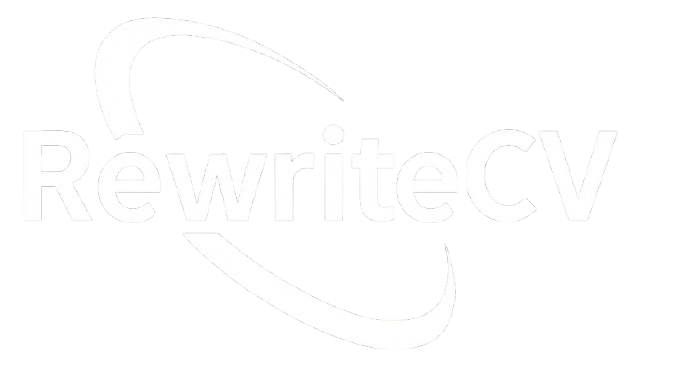
Hey there, future trailblazer! Picture this: You’ve just aced that nerve-wracking interview, the hiring manager’s eyes light up when you talk about your passion for [your field], and suddenly, they drop the golden words: “We’d love to have you on board.” Your heart’s doing somersaults, but then comes the curveball—the salary offer. It’s decent, sure, but is it your decent? As a fresh grad, stepping into the corporate world feels like your first solo flight: exhilarating, a bit terrifying, and oh-so-important to nail. I’ve been there, fumbling through my own negotiations back when I was fresh out of college, and let me tell you, a little savvy can turn that “okay” offer into a launchpad for your dreams.
In this deep dive, we’re unpacking the art of salary negotiation for freshers like you—not the cutthroat boardroom battles, but the smart, confident conversations that set you up for long-term wins. We’ll blend real stories from grads who’ve crushed it, expert tips straight from the pros, and step-by-step strategies you can use tomorrow. Whether you’re eyeing tech gigs in Silicon Valley or creative roles in bustling city hubs, this guide’s got your back. Ready to turn that entry-level offer into something that sings? Let’s dive in.
Why Bother Negotiating? The Hidden Power of Your First Ask
Let’s kick things off with a confession: My very first job offer? I accepted it on the spot, starry-eyed and thrilled just to have a paycheck. Big mistake. Six months in, I learned my colleague—with similar quals—had negotiated 15% more. Ouch. That sting? It’s a rite of passage for many freshers, but it doesn’t have to be yours.
Negotiating isn’t about being greedy; it’s about recognizing your worth in a market that often undervalues new talent. According to a study by Glassdoor, a whopping 59% of job seekers don’t negotiate, leaving an average of $5,000–$10,000 on the table annually. For freshers, that gap compounds over time—think compound interest, but for your career. It’s not just cash; it’s leverage for future raises, better benefits, and even that extra week of PTO to backpack through Europe.
From an employer’s lens, they’re not shocked by your ask. In fact, HR pros build wiggle room into offers precisely because they expect it. As career coach Jenny Blake shares in her book Pivot, “Silence on salary is the real killer—speak up, and you’re playing the game they already know.” And get this: Women and underrepresented freshers often face steeper hurdles here, with data from Lean In showing a persistent 20% pay gap partly due to negotiation disparities. But armed with facts, you flip the script.
The payoff? Beyond the immediate boost, negotiating signals confidence—a trait bosses love. One grad I mentored, Alex, turned a $45K offer into $52K by simply citing market data. Today, he’s leading a team, crediting that bold move for his trajectory. So, why bother? Because your first salary isn’t just rent money; it’s the foundation of your financial freedom. Let’s build it strong.
Know Thy Worth: Research Like a Pro Sleuth
Alright, negotiation ninja-in-training, step one is arming yourself with intel. Imagine walking into a poker game blindfolded— that’s negotiating without research. I once prepped for an interview by scouring Payscale’s salary calculator, plugging in my degree, city, and role. It wasn’t glamorous, but it gave me a benchmark that turned “um, sure?” into “Based on industry standards, I’d aim for $X.”
Start with the basics: Use tools like Indeed’s salary search to see what peers earn for your role in your location. Factor in your unique sauce—internships, side projects, or that killer GPA. For freshers, entry-level salaries vary wildly: Software engineers in San Francisco might eye $80K+, while marketing roles in the Midwest hover around $45K, per Robert Half’s annual guide.
But don’t stop at numbers. Dig into the company’s vibe. Glass a peek at Vault’s company rankings to gauge their culture—do they value innovation or stability? One anecdote: My friend Sarah, a comms major, discovered her target firm’s equity perks via Reddit threads, which sweetened her counteroffer beyond base pay.
Tailor it to perspectives too. If you’re from a non-traditional background, highlight transferable skills from gigs like freelancing or volunteering. Experts at Harvard Business Review emphasize framing your ask around mutual value: “How can my fresh ideas drive your team’s goals?” Pro tip: Track everything in a simple spreadsheet—role, location, your min/max range. Knowledge isn’t power; it’s your secret weapon. You’ve got the map; now chart the course.
Timing It Right: When and How to Pop the Question
Ah, timing—the unsung hero of every great negotiation. Pop the salary chat too early, and you risk lowballing yourself; too late, and the train’s left the station. From my trial-and-error days, I learned the sweet spot: After they’ve hooked you with enthusiasm, but before the formal offer.
Typically, hold off until they extend an offer—it’s a green light they’re invested. But if they probe with “What’s your expectation?” during interviews, deflect gracefully: “I’m excited about the role and flexible, but I’d love to discuss once we align on fit.” This buys time, as advised by negotiation guru Chris Voss in “Never Split the Difference”.
For freshers, virtual interviews add a twist—body language matters less, so lean on tone. Schedule a dedicated call post-offer; email feels cold. Remember Priya’s story? Fresh out of design school, she waited for the offer email, then replied: “Thrilled! Before accepting, can we chat compensation?” That 10-minute Zoom netted her a 10% bump plus remote work flexibility.
Perspective shift: View it as a dialogue, not a demand. Employers appreciate freshers who research timing— it shows maturity. And if it’s a small startup? They might not have fat budgets, but perks like mentorship or stock options could shine. Nail the when, and half the battle’s won.
Crafting Your Pitch: Scripts, Stories, and Swagger
Now, the fun part: Your pitch. Forget stiff scripts; think storyteller mode. I scripted my first counter like a bad rom-com: “Uh, more money?” Cringe. Instead, weave in narrative. “In my internship at [startup], I boosted engagement by 30%—I’m eager to bring that energy here, and market data suggests $X aligns with that impact.”
Break it down: Anchor high but realistic—aim 10-20% above their offer, backed by your research. Use “we” language: “How can we make this work for both sides?” For diverse voices, McKinsey’s insights on inclusive negotiation suggest emphasizing relational wins, like team growth.
Example script for a marketing fresher:
- Open warmly: “I’m over the moon about joining the team—your mission resonates deeply.”
- State value: “With my content strategy projects from university, I’m ready to hit the ground running.”
- Drop the ask: “The offer’s strong at $48K, but based on Salary.com data, I’d propose $55K to reflect that.”
- Close collaboratively: “What flexibility do we have here?”
Anecdote alert: Tom, an engineering grad, shared a personal win on LinkedIn—countering with a story of his hackathon triumph, landing not just salary but a signing bonus. Humor helps too: “I’d love enough to fund my coffee addiction without guilt!” Keep it authentic; swagger comes from prep, not bravado.
Beyond the Bucks: Total Compensation Magic
Salary’s the headline, but the full package? That’s the plot twist. Freshers often overlook this, but perks can eclipse base pay. My early career hack? Prioritizing student loan repayment matching over a tiny raise—it saved me thousands.
Holistic view: Total comp includes health insurance, 401(k) matches, unlimited PTO, or even gym stipends. For global freshers, factor in relocation aid or visa support. Forbes’ guide to comp packages breaks it down: Negotiate the whole pie, not just the slice.
Perspective play: Startups might skimp on salary but dazzle with equity; corporates offer stability. One grad pal negotiated four extra vacation days instead of cash—priceless for burnout-proofing. Always ask: “What else can we explore to make this irresistible?”
🚀 Salary Negotiation Showdown: Base vs. Total Comp
| Aspect | Base Salary Focus | Total Compensation Approach | Winner for Freshers? |
|---|---|---|---|
| Immediate Cash Flow | Quick win for rent/bills ($50K base) | Slower but builds wealth (e.g., 401k match) | Base (short-term relief) |
| Long-Term Growth | Sets raise benchmark, but caps potential | Equity/perks compound (e.g., stock vesting) | Total Comp (future-proof) |
| Flexibility | Rigid; hard to tweak post-offer | Customizable (PTO, remote, learning budget) | Total Comp (lifestyle fit) |
| Risk Level | Low—guaranteed dollars | Higher (e.g., unvested equity) | Base (stability seeker) |
| Negotiation Ease | Straightforward number talk | Opens creative doors, builds rapport | Total Comp (relationship builder) |
This table? Your cheat sheet. Use it to weigh options mid-chat—freshers thrive on balanced bets.
Handling the Pushback: Grace Under Fire
Rejection stings, but pushback’s inevitable. “Budget’s tight” or “That’s our max”? Don’t fold; probe. I once heard “no” and countered with, “I get constraints—could we revisit in six months?” It worked, tying my raise to performance.
Expert angle: Negotiating.org’s tactics recommend the “flinch”—pause dramatically, then ask why. It uncovers truths. For freshers from underrepresented groups, Catalyst’s resilience tips stress ally-building: Loop in a mentor for role-play.
Story time: Lena, a first-gen college grad, faced “entry-level standard” pushback. She flipped it: “Understood—how does this role’s impact justify that?” Boom, 8% uptick. Stay curious, not combative; every “no” is a detour to yes.
Sealing the Deal: Follow-Up and Long Game
Offer in hand? Don’t ghost—follow up promptly. Email thanks, recap agreements, and get it in writing. I always CC myself for records; protects against “miscommunications.”
Long view: This negotiation kickstarts your arc. Track it annually—use tools like Mint for budgeting to see growth. Network on LinkedIn for insider tips; one connection led me to my dream pivot.
For freshers, it’s marathon training: Each ask hones your voice. Celebrate wins, big or small—a coffee toast counts.
Frequently Asked Questions: Your Negotiation Lifeline
Got burning questions? We’ve got answers—straight talk for the fresher frenzy.
Q: What if I’m desperate for the job? Should I skip negotiating?
A: Never. Even a 5% ask shows spine. Desperation’s normal, but undervaluing yourself sets a precedent. Prioritize fit, then finesse the numbers.
Q: How do I negotiate remotely or via email?
A: Video calls trump email for rapport, but if typing’s your jam, use bold for asks and attach your research PDF. Keep it concise—three paragraphs max.
Q: What’s a realistic bump for freshers?
A: 10-15% on base, plus perks. Depends on industry—tech’s generous, nonprofits tighter. Always anchor to data, not dreams.
Q: I got ghosted after countering—now what?
A: Follow up once politely: “Excited to hear your thoughts!” If crickets, it’s their loss. Apply elsewhere; abundance mindset wins.
Q: How do cultural differences play in? (e.g., international roles)
A: Research norms—some cultures value harmony over haggling. Expat Insider’s guide helps navigate global nuances.
Q: Can I negotiate after accepting?
A: Tricky, but possible pre-start date. Frame as “new info” and keep it light—better than regret.
Wrapping It Up: Your Negotiation North Star
Whew, we’ve journeyed from wide-eyed wonder to wage-warrior wisdom, haven’t we? From my fumbling first offer to the grads glowing in their negotiated glory, one truth shines: Salary negotiation for freshers isn’t a hurdle—it’s your high-five to the universe, claiming space in a world that needs your spark.
Think back to Alex’s 15% leap, Sarah’s equity edge, or Tom’s hackathon hustle—they didn’t just get paid; they invested in futures brimming with possibility. You’ve got the tools now: Research as your compass, timing as your rhythm, pitches laced with stories that stick. And remember, it’s not zero-sum; a great negotiation lifts everyone— you thrive, your team wins.
So, next steps? Dust off that offer email, bookmark those salary sites, and practice your pitch in the mirror (or with a friend—bonus laughs). Reflect: What does “worth it” mean for you—freedom, growth, or that epic road trip fund? Whatever it is, chase it unapologetically. You’re not just negotiating salary; you’re scripting your saga. Go make it legendary. What’s your first move? Drop a comment—I’d love to cheer you on.
